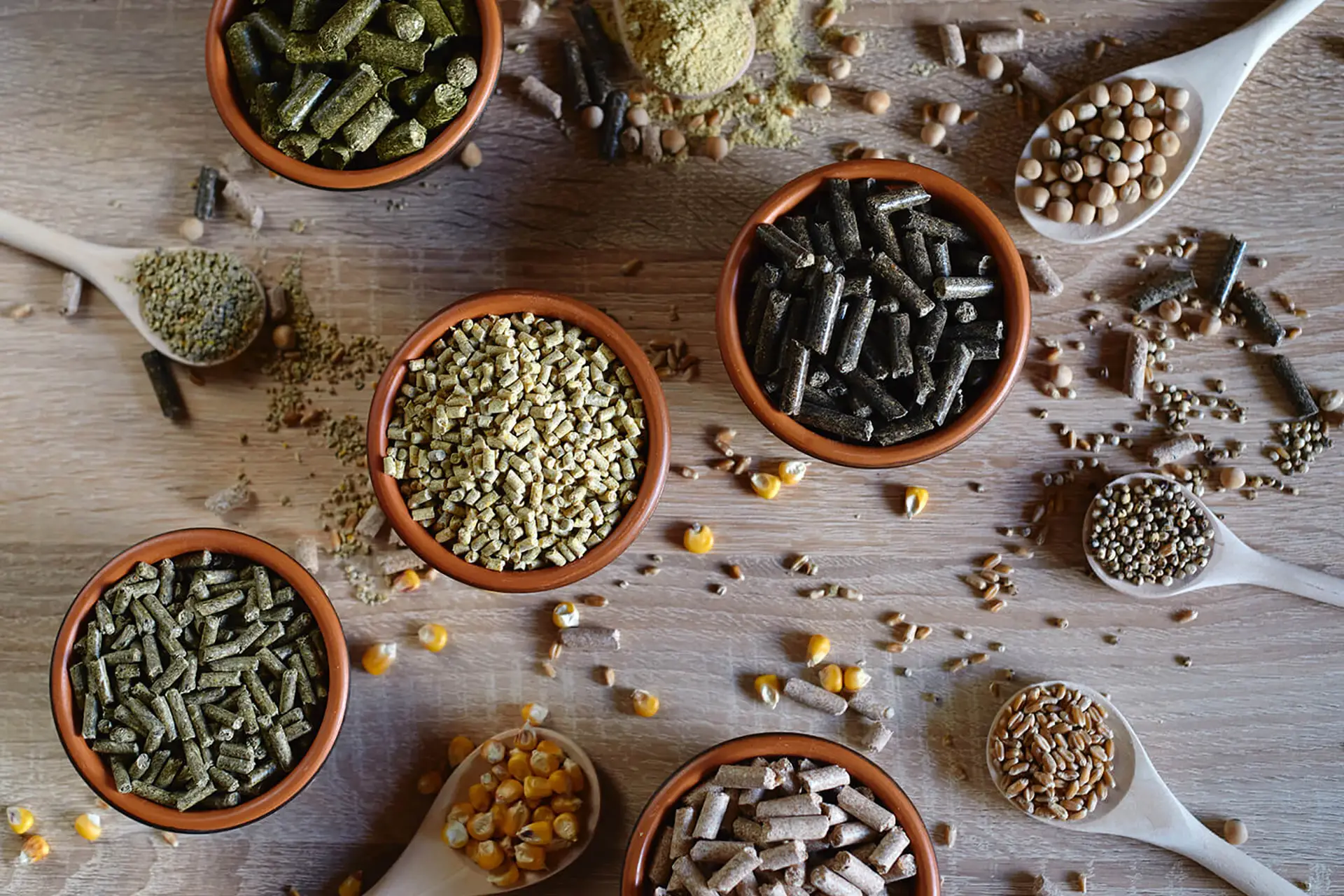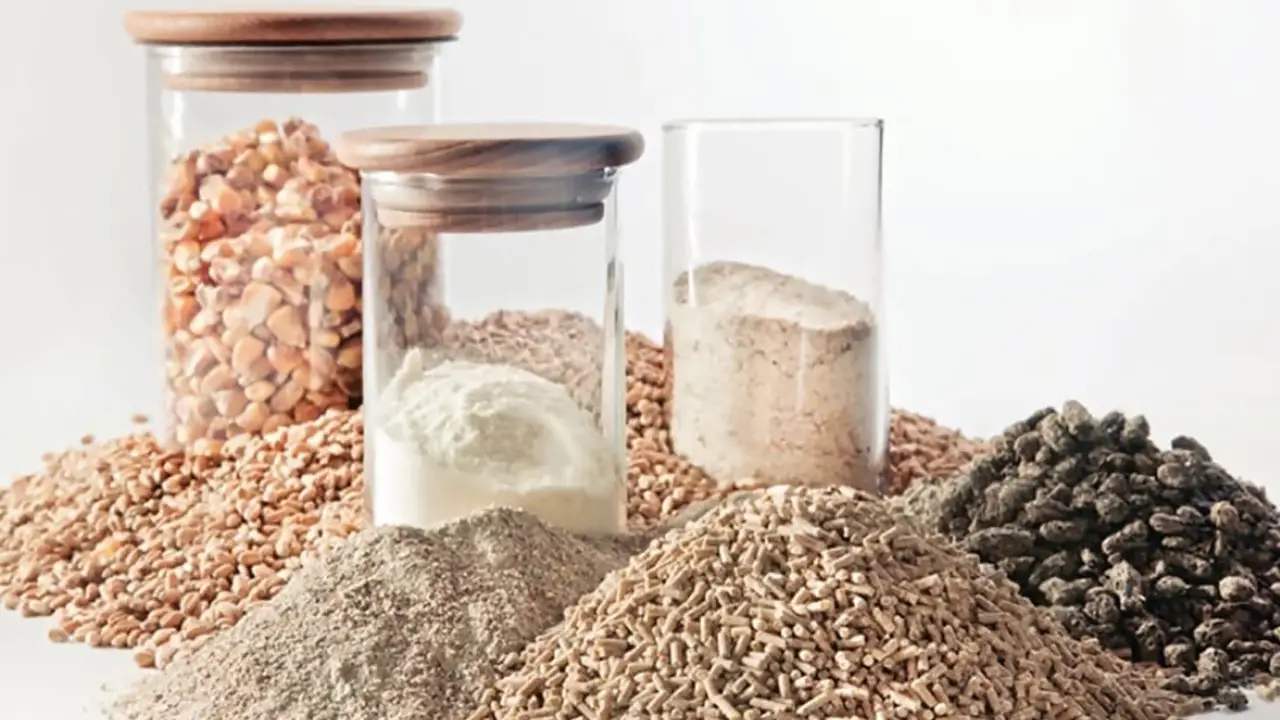Feed Additives: Efficiency and Health in Animal Nutrition

In modern livestock operations, feed additives are of strategic importance for protecting animal health, supporting growth, improving feed utilization, and ultimately maximizing production efficiency.
What Are Feed Additives and Why Are They Important?
Feed additives are substances added to animal feed for specific purposes, which enhance the nutritional value of the feed, improve feed utilization, protect animal health, and/or increase the quality of animal products. These substances have become indispensable tools in modern livestock operations to increase efficiency and reduce costs.
When used correctly, feed additives enable animals to reach their genetic potential while also contributing to public health by reducing antibiotic use.

Types and Functions of Feed Additives
Probiotics and Prebiotics
Probiotics are live microorganisms that positively affect the microbial balance in the animals’ intestinal system. Prebiotics, on the other hand, are indigestible components that stimulate the growth and activity of beneficial bacteria in the gut. This duo provides natural protection against pathogenic microorganisms by improving gut health.Main Benefits:
- Supports digestive system health
- Strengthens the immune system
- Increases feed utilization rate
- Reduces the need for antibiotics
Feed Enzymes
Feed enzymes are biological catalysts used to improve the digestibility and utilization of nutrients in feed by animals. Specifically, phytase breaks down phytic acid found in concentrated feed—which is indigestible to animals—significantly increasing the bioavailability of phosphorus.Main Benefits:
- Increases the bioavailability of nutrients
- Reduces feed costs
- Decreases environmental pollution
- Improves animal performance
Antioxidants and Preservatives
Antioxidants prevent the oxidation of fats and other components in feed, preserving the nutritional value and palatability of the feed. Preservatives, on the other hand, inhibit the growth of mold, yeast, and bacteria in feed, extending its shelf life and protecting animal health.Main Benefits:
- Preserves feed quality
- Prevents nutrient loss
- Prevents the formation of toxins that negatively affect animal health
- Reduces feed waste
Essential Fatty Acids and Vitamins
Fatty acids and vitamins that animals need for healthy growth, reproduction, and productivity but cannot synthesize in their bodies are used as feed additives. Particularly, omega-3 and omega-6 fatty acids, along with vitamins A, D, E, and K, are critically important for animal health and productivity.Main Benefits:
- Supports growth and development
- Increases reproductive performance
- Strengthens the immune system
- Enhances the nutritional value of animal products



